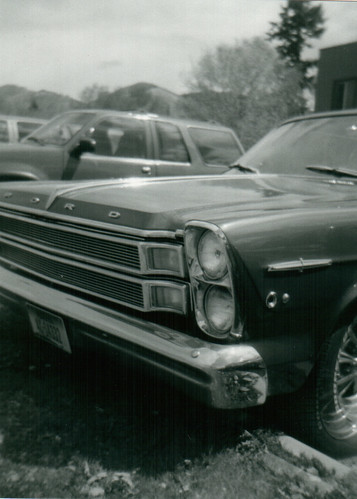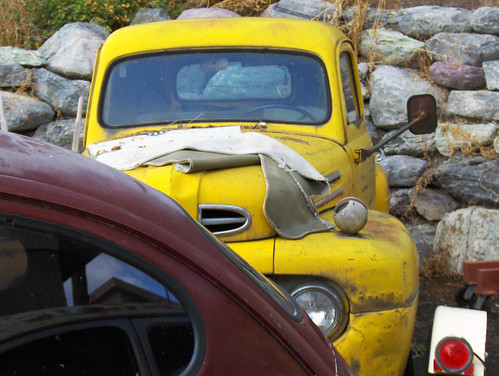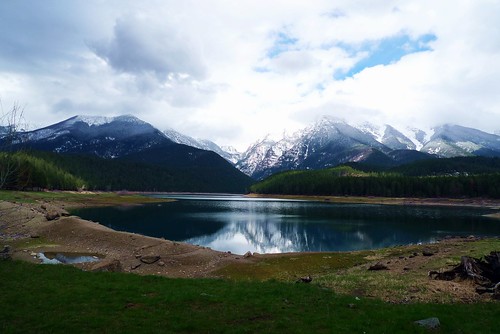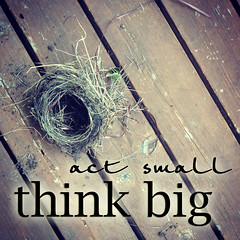 |
| {image by Robert S. Donovan via creative commons} |
Change is hard. We are all busy people with busy lives, and it can be ridiculously challenging to make adjustments amid our insanity. This resistance is why I stopped making life-changing resolves. It's too hard. Too overwhelming. Consequently, every successful long-term change I have made has started with a short-term decision. I HAVE to start by saying, "This is what I'm doing right now, and this is why, and this is how." Then in the next moment, I choose again, then again, then again...
In 2005, after Hurricane Katrina hit the Southeast, many
in the US became astoundingly aware of the precarious nature of our oil
and gas industry. I decided I could walk around angry at the way our
fossil fuels are managed (which I still do... let's face it), or I could
start gradually changing my dependence on petroleum products... one
decision at a time.
Plastic bags stood out as the largest petroleum-based
indulgence that I chose regularly. While the price of oil soared, I
challenged myself to 30 days of not accepting a disposable plastic bag
from any store. My husband got me a fabulous reusable bag for my purse.
It wraps up tightly, and hardly takes any space when not in use. If I
forgot to bring this bag, or needed more bags than I brought, I would
just push my cart of items to my car and make the best of things.
I almost got through those 30 days without accepting a
bag! The only exception was a strange situation in which I was told I
MUST use the store bag so my purchase looked legitimate. How ridiculous!
This short-term resolve led to an eight-year streak of decisions
that I still make every day. I discovered that I can carry lots of
things. Bags are just not nearly as important as we believe. In 2005, I
discovered resistance to this lifestyle. The eye-rolling in the checkout
lane of the grocery store... the perplexity of baggers who couldn't
look at each bag and make a new decision about how to fit my
groceries... BUT, in the last 8 years, these responses have changed
dramatically. Now baggers ask if I brought my own, and cashiers offer me
a discount for my decision to reuse bags.
It took many people like me, making a daily decision to
reuse bags, that has turned it into a cultural norm. One small thing that,
when repeated over time, is changing our society. This result is
occurring even in parts of the world (like mine) where the government is
not taking an active role in the process. People are doing it in their
everyday. People like you and me!
Small changes can make a difference.
We are already seeing it happen. Together, our small acts achieve
greatness.
A Few Bag Facts
(see CleanAir.org for these and more facts about waste and recycling):
- Every year, Americans use approximately 102.1 billion plastic bags, creating tons of landfill waste.
- Plastic bags do not biodegrade. Light breaks them down into smaller and smaller particles that contaminate the soil and water and are expensive and difficult to remove.
- Less than 1 percent of plastic bags are recycled each year. Recycling one ton of plastic bags costs $4,000. The recycled product can be sold for $32.
- When the small particles from photodegraded plastic bags get into the water, they are ingested by filter feeding marine animals. Biotoxins like PCBs that are in the particles are then passed up the food chain, including up to humans.
What do you think about reusable bags? What do you love about them, and not-really-love about them? I have to confess, this is one easier solution that I find difficult -- while I own several reusable bags, I always forget to bring them from my car into the store! But I love Anna's idea to, when she forgets her bags, simply load her items back into the cart and forgo plastic bags anyway.
* * *
Anna
Meade is an idealist turned cynic turned hopeful. She is learning to
thrive amid the perpetual in-betweens. A seasoned listener and observer,
she found her voice through art journaling and painting. Her life
dreams are to break boundaries, build bridges and roam free. She tells stories at annameadearts.wordpress.com
.jpg)











